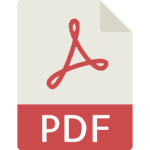Filter by: FEDERAL DISTRICT
Filter by Price
Filter by: FILE TYPE
PLAINTIFF’S MOTION TO COMPEL DISCOVERY RESPONSES AND TO COMPEL THE DEPOSITIONS OF /FROM AN ANALYSIS GROUP AND INCORPORATED MEMORANDUM OF LAW
PLAINTIFF’S MOTION TO COMPEL DISCOVERY RESPONSES AND TO COMPEL THE DEPOSITIONS OF /FROM AN ANALYSIS GROUP AND INCORPORATED MEMORANDUM OF LAW
UNITED STATES UNOPPOSED MOTION TO RESET HEARING ON MOTION FOR PROTECTIVE ORDER
UNITED STATES UNOPPOSED MOTION TO RESET HEARING ON MOTION FOR PROTECTIVE ORDER
Complaint
Fraud (False Representation) , Specific Performance of the Contract, Breach of Employment Contract for a Definite Period of Time Specific Performance
Stipulated Jury Instruction
Sample instructions for Breach of Contract
Jury Instruction breach of Contract
Sample jury instruction in county court breach of contract
Plaintiff response to motion to dismiss
Response to motion to dismiss on Patent issue
Product Liability Lawsuit – Federal Court Civil Complaint and Jury Demand
Federal Court Civil Complaint, including claims for Strict Liability, Product Liability-Failure to Warn, Negligence, Breach of Warranty- Express and Implied, Fraud, Fraudulent Concealment, and Negligent Representation.
Product liability is the area of law in which manufacturers, distributors, suppliers, retailers, and others who make products available to the public are held responsible for the injuries those products cause.
Product Defects: Responsible Parties
For product liability to arise, at some point the product must have been sold in the marketplace. Historically, a contractual relationship, known as “privity of contract,” had to exist between the person injured by a product and the supplier of the product in order for the injured person to recover. In most states today, however, that requirement no longer exists, and the injured person does not have to be the purchaser of the product in order to recover. Any person who foreseeably could have been injured by a defective product can recover for his or her injuries, as long as the product was sold to someone.
Liability for a product defect could rest with any party in the product’s chain of distribution, such as:
-The product manufacturer;
-A manufacturer of component parts;
-A party that assembles or installs the product;
-The wholesaler; and
-The retail store that sold the product to the consumer.
Breach of Contract Complaint – Ohio
Complaint for Breach of Contract, breach of implied dealing, money had and conversion
Federal Civil Complaint for Copyright Infringement
Federal Civil Complaint for violation of copyright.
As a general matter, copyright infringement occurs when a copyrighted work is reproduced, distributed, performed, publicly displayed, or made into a derivative work without the permission of the copyright owner.
Copyright infringement can be a felony or a misdemeanor. A felony charge must involve an infringement of the copyright owner’s reproduction or distribution rights. A felony conviction carries a maximum sentence of five years in prison and a maximum fine of $250,000.
Copyright infringement is using someone else’s work without getting that person’s permission. … The owner of a copyright gets to decide who can legally make copies of that work. It is illegal to copy large sections of someone else’s copyrighted work without permission, even if you give the original author credit.
The legal penalties for copyright infringement are: Infringer pays the actual dollar amount of damages and profits. The law provides a range from $200 to $150,000 for each work infringed. Infringer pays for all attorneys fees and court costs.
US District Court for the Eastern District of Michigan
Defendant’s Memorandum in Support of its Motion to Dismiss
Defense Brief supporting motion to dismiss a misappropriation of trade secrets and breach of contract case under diversity jurisdiction. US District Court for the District of Minnesota.
Defendant’s Motion In Limine to Preclude Evidence of Uncharged Tax Years
Motion by a criminal defendant in the US District Court for the Western District of California to preclude the inclusion of specific evidence. In this case, to exclude evidence of tax filings for ax years not included in the Government’s charges.










